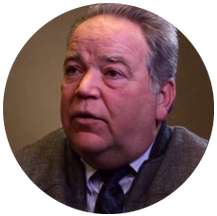“I wanted to break my fingers…”
The expression “desperate times call for desperate measures” has been attributed to Hippocrates, the famous Greek physician. The father of the oath still followed by today’s doctors used the phrase to justify why extreme diseases demand drastic treatments.
Humans are genetically predisposed to follow Hippocrates advice. The Reptilian part of the human brain, the amygdala, comes hard-wired with the tendency for fight or flight. The greater the perceived threat, the more severe our response.
This fact of life sheds light on why a professional-soccer-player-turned-pathological gambler says he wanted to bust his phone-dialing digits. His distorted logic dictated that the injury would prevent him from calling his bookie to place more bets. That same thinking left him broke after exhausting his entire $7 million (pound) fortune.
His reaction replicated the inexorable, grinding desire that sparked it. About 10 million people in the U.S. simply cannot just walk away from gambling.
The overwhelming fear and anxiety associated with addiction often lead to ever more disastrous behaviors. Pathological gamblers can and do resort to crimes involving money. Three-fourths suffer from depression. One in five attempt suicide. Their families more frequently struggle with physical and verbal abuse, divorce, major debt and stress-related illnesses.
The following offer “true life” examples:
- A police officer threw away a three-decades long career and was sentenced to 33 months in jail for sneaking illegal drugs from the evidence room and re-selling them on the street.
- A member of the clergy stole from parishioner tithes and faced prosecution and public humiliation.
- A school superintendent lied about his hours and pilfered from the school dance ticket sales. He served six months, lost his job and nearly lost his family.
- A township fiscal officer embezzled public funds. Her felony theft still haunts her.
- A mother nearly lost permanent custody of her children. She credits sobriety as her only chance to keep her family together.
We shake our heads at such choices. It seems well within our rights to pass judgment on such outrageously bad decisions.
However, it’s time we recognized that addiction is a disease marked by extremes and desperate measures. Consider the Facebook and now news media coverage of the overdosed couple in East Liverpool, Ohio. In a photo released by City officials, viewers can see two adults thoroughly passed out in the front seat of a vehicle as a young boy sits alone in his back car seat. We shake our heads and condemn the callous carelessness toward children.
What we cannot forget is the brain chemistry imbalances that are endemic to addiction. They override logic and destroy the clear thinking about consequences necessary to making thoughtful choices. When our “anxiety” spikes, the brain will literally do almost anything to reduce the cortisol coursing through it and replace the stress with the calm and happiness generated by dopamine and serotonin – both of which erupt when problem gamblers engage in their favorite pastime.
As Dr. Frank Kros, an expert who presented at the statewide gambling conference this past year explained, an addicted brain functions like an out-of-control teeter-totter that won’t stop bouncing up and down until it finds a better balance.
In other words, chemicals can trump consequences.
We must realize that help for the truly desperate calls for a lot less judgment and a lot more treatment.

